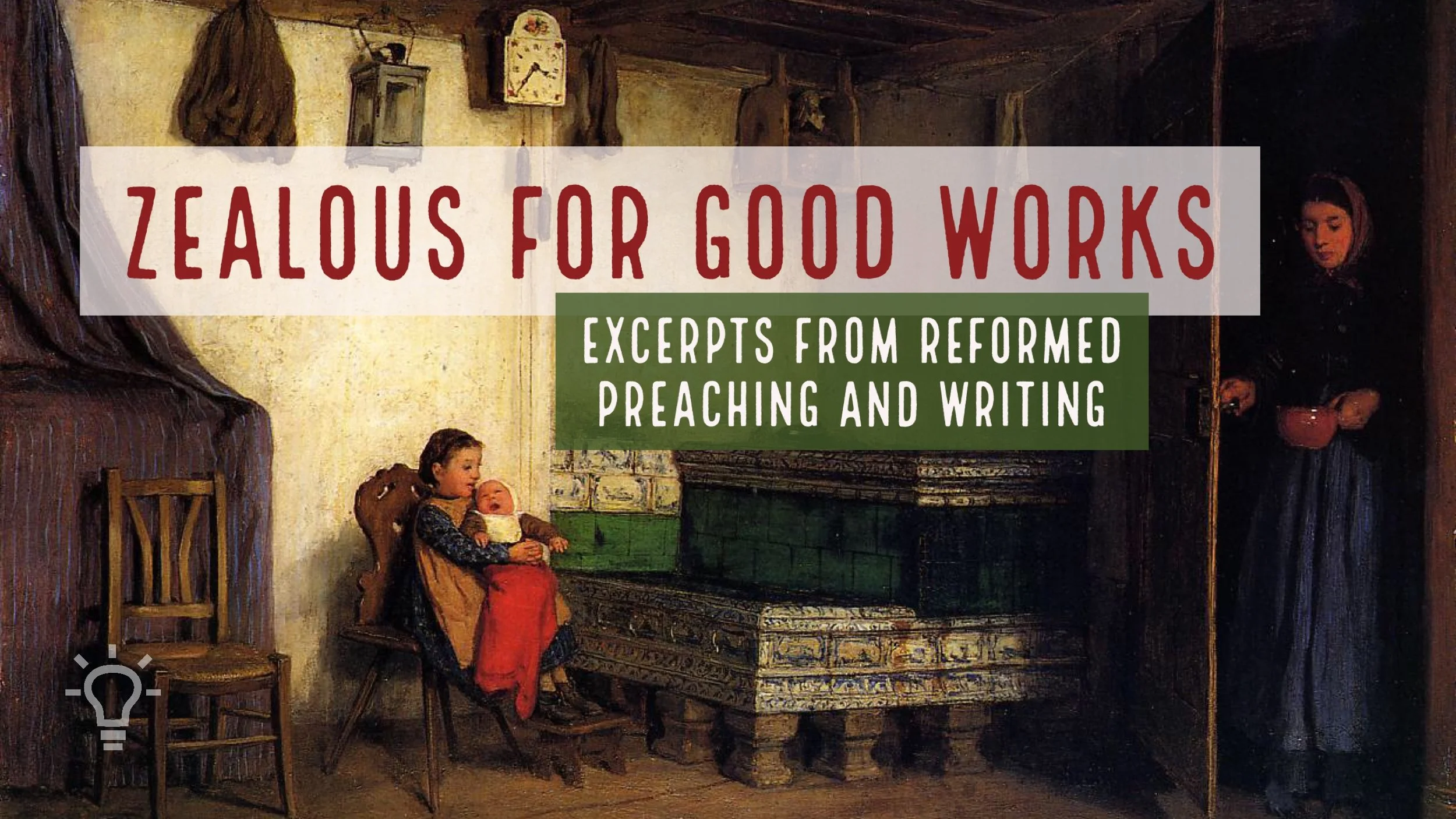



A Cheerful & Constant Use Of The Means & Helps Appointed By God: Richard Baxter
I’ve recently begun reading Baxter’s monumental “A Christian Directory, Or A Sum Of Practical Theology And Cases Of Consience.” In this post I provide a quotation of a brief section in which he next lays out the road map of spiritual growth. He describes the means God gives and we must use to progress spiritually. I hope it will be a help to you, and may the Lord provide you with each of these means and the grace of His Spirit to use them cheerfully and constantly!

Zealous For Good Works: What Are Good Works (part 2)?
In light of some recent online controversy surrounding the place of good works in the lives of Christians, I am engaged in this series of posts with the aim of encouraging zealousness (rather than mere theological debate) for good works. In the previous post, I began to discuss what we mean by “good works” by attempting to clear out some misconceptions. This post turns in a more positive direction, seeking to answer the question more directly—soon enough we will be on to examining excerpts from historic Reformed preaching and writing.
But first, what are good works?

When The Truth Sounds Like Heresy: Piper and A. W. Pink On The Need For Repentance
I was struck then by A. W. Pink’s old explanation of the necessity of repentance. In the passage below he shows his concern over similar problems that Piper and representatives of the historic Reformed tradition are addressing: the necessity of sanctification, repentance, and good works is a pressing need for our lawless day, but some in our own circles not only sound an uncertain sound, they actually often actively fight against these biblical and necessary emphases.

Mark Jones on Justification and Sanctification: An Archive (Updated October 2019)
This is an index and introduction to Mark Jones’ posts on justification, sanctification, good works, merit, and future judgment. These posts address aspects of these doctrines in light of current controversies, past wisdom, and our Reformed confessional standards.

Bavinck: God’s Threats Against Believers Are Means Of Them Persevering
Herman Bavinck outlines the passages where Christians are warned and threatened against falling away, and are called to persevere in Christ, his word, and his love. Bavinck argues that these threats are used by God to motivate the willing perseverence, a perseverence that he has guaranteed in our regeneration and is not undermined by these threats.

Zealous For Good Works
This post is the first in a series designed to encourage good works by providing excerpts from Reformed preaching and writing. But, before we get started, I think it is important to ask why this even matters... This post seeks to provide some biblical reasons we as Christians should we make a study of good works.

Sanctified by Grace
Sanctification is our 'working out' what God Himself has 'worked in,' which includes not just the doing or working for His good pleasure, but even our willingness or desire to do so in the first place!

Calvin on Love, Righteousness, and Merit
Love assuredly is the chief commandment in the Law, and since the Spirit of God trains us to love, it cannot but be a cause of righteousness in us, though that righteousness even in the saints is defective, and therefore of no value as a ground of merit.
Use our archive link above to find all of our available blog content, or search for your topic or author of interest.
Featured Posts
We need not reinvent Christianity or carve out ever-smaller enclaves to prove our faithfulness. We do not need to imitate the liberal order’s obsession with identity and control. We can return to nature, heritage, tradition, fathers, and our faith. Sectarian comfort is a false security for a people who have forgotten how to receive life from God’s hand. It will take Christian courage in an age of liberals and sects to grow deeper roots and provide a more secure and fruitful future.
Follow us on social media:





















